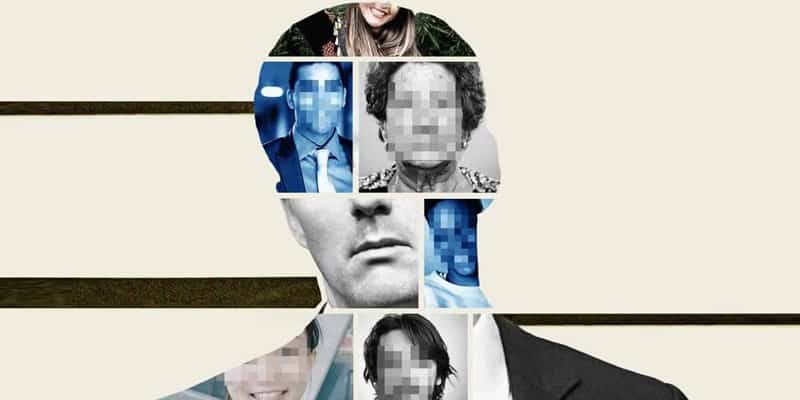Privacy Canada is community-supported. We may earn a commission when make a purchase through one of our links. Learn more.
Canada’s Data-Laws Can’t Protect Against Far-Right Facial Recognition: A Clear View of Clearview AI

The right to be left alone is often treated as one of the most fundamental rights of mankind, but according to the company Clearview AI, this right doesn’t extend to your image- well, not if you happen to be Canadian it doesn’t.
The Company, who uses facial recognition software to aid law enforcement, has caused outrage after refusing to remove the images of Canadians from its software after they officially request it. This is a privilege afforded to those from the US, the UK, and other nations, whose legal codes permit the right to removal. Perhaps most egregious is that the company has responded to requests from citizens for a full catalogue of their face on record, but upon confirmation of the catalogue then refuses to delete them.
Many, including the CBC reporter Thomas Daigle -who received such a catalogue upon request- saw this as a flaunting of their non-consensually gathered data.
How Clearview AI Endangers Your Privacy
What has bothered many even more than the non-consensual usage of their images is that it is only Canadians who cannot have these images removed. This is essentially due to a fault in Canadian privacy law to pre-empt the tsunami of privacy violations that would emerge as data technology developed.
As a result, Canadian citizens have no “right to be forgotten”, and there is little legal restriction on the indefinite usage of their images by whoever can gather them. University of Ottawa law professor Michael Geist described how: “Canadian privacy law has really failed to keep pace with some of these emerging challenges.”
Why Canadians are the Exception
This right to be forgotten is not a legal fantasy, being standard practise in many other digitally advanced countries. The EU has the strongest such laws, which provides the citizens of its member states with explicit rights about the erasure of online presence.
The central gist is, just because you post an image online, it doesn’t automatically mean consent for anyone who wants to use it. But legally speaking, this isn’t yet enshrined in Canadian law, (though debate has been ongoing) so companies such as Clearwater AI can exploit the data without consequence.
In a lacklustre response to deletion requests, the founder said “We process privacy requests for opt-out and data access we receive from Canadian citizens”, but made no mention if this ‘processing’ would ever lead to anything, having in other places said deletion is only appropriate “under certain conditions”. This is a worrying violation of online privacy in of itself, but even more than that, the people gathering the data have dangerous views on its use.
Clearview AI’s Reasoning
The logic of Clearview AI is that by combing over 3 billion facial images from the internet, they can help law enforcement find out who suspects are based on CCTV images, something there are reports that Canadian law enforcement departments have already done; such as Toronto and Calgary police. Worryingly, they used Clearwater AI when the debate on its legality was still ongoing.
However, eventually, the company hopes it can determine who is more likely to actually commit crimes in the first place to allow law enforcement to know whom to monitor more closely; all based on their facial data.
You likely feel unease at this logic, the words dystopian are often thrown about when referring to Clearview AI. You might even be tempted to compare the company to the ww2-era Nazi practitioners of phrenology (skull measuring to determine social characteristics); and worryingly, you wouldn’t exactly be wrong.
The Far-Right Connection
Clearwater AI has a long connection with far-right and neo-Nazi groups, who helped to create the world’s most powerful facial recognition technology.
A Huffington post exposé found confidential documents proving that the founder of the company Ton-That, along with other employees have: “deep, longstanding ties to far-right extremists. Some members of this alt-right cabal went on to work for Ton-That”. If you were already uneasy about a company founded by a phishing scammer (did I mention that?), then his extremist links should have you panicking.
No wonder then, that many experts such as Josh Lamers have specifically highlighted the danger that Clearview AI’s facial recognition poses for black, Indigenous, and racialized groups. Ton-That is confirmed to have attended a dinner of investors, software engineers, and reporters where the conversation Idly drifted towards creating ethnostates; many of the attendees would later go on to invest in Clearview AI. The more you learn about the software, the more reason for concern you find.
Change on the Horizon
Canada’s privacy watchdog has recently announced it fully believes its citizens should have the right to have their data deleted should they request. As the Ontario privacy commissioner Brian Beamish said, this opt-out is especially important “given that Clearview obtained people’s images without their consent”
Other privacy commissioner offices, including the nation one, declined to comment on their ongoing investigations into the software.
At the moment, the software is able to exploit legal loopholes, but it is in the crosshairs at least. In the meantime, make sure your online privacy is up to date for the challenges of 2020, because you never know when a far-right scammer might try to steal your data.
Conclusion
The modern internet is becoming more and more inhospitable to data privacy, 2020, in particular, has provided more challenges than most years. Covid-19 forced much of our lives online, the facilitators of this (such as Zoom) have fallen short, and now a company, who by one of its investor own admission “might lead to a dystopian future or something” is threatening to weaponize our online presence. The cherry on top, it’s only Canadian citizens who have no way to legally fight back.
Clearview AI has been hailed as one of the most serious threats to online privacy yet, and if there isn’t a robust legislative response soon the danger is sure to grow. In the meantime, the best thing individuals can do is make their security ironclad (a VPN is a good start) and contact their local elected officials to combat this looming danger, one that threatens to infect Canadian law enforcement with the racist, authoritarian principles of its founders.





